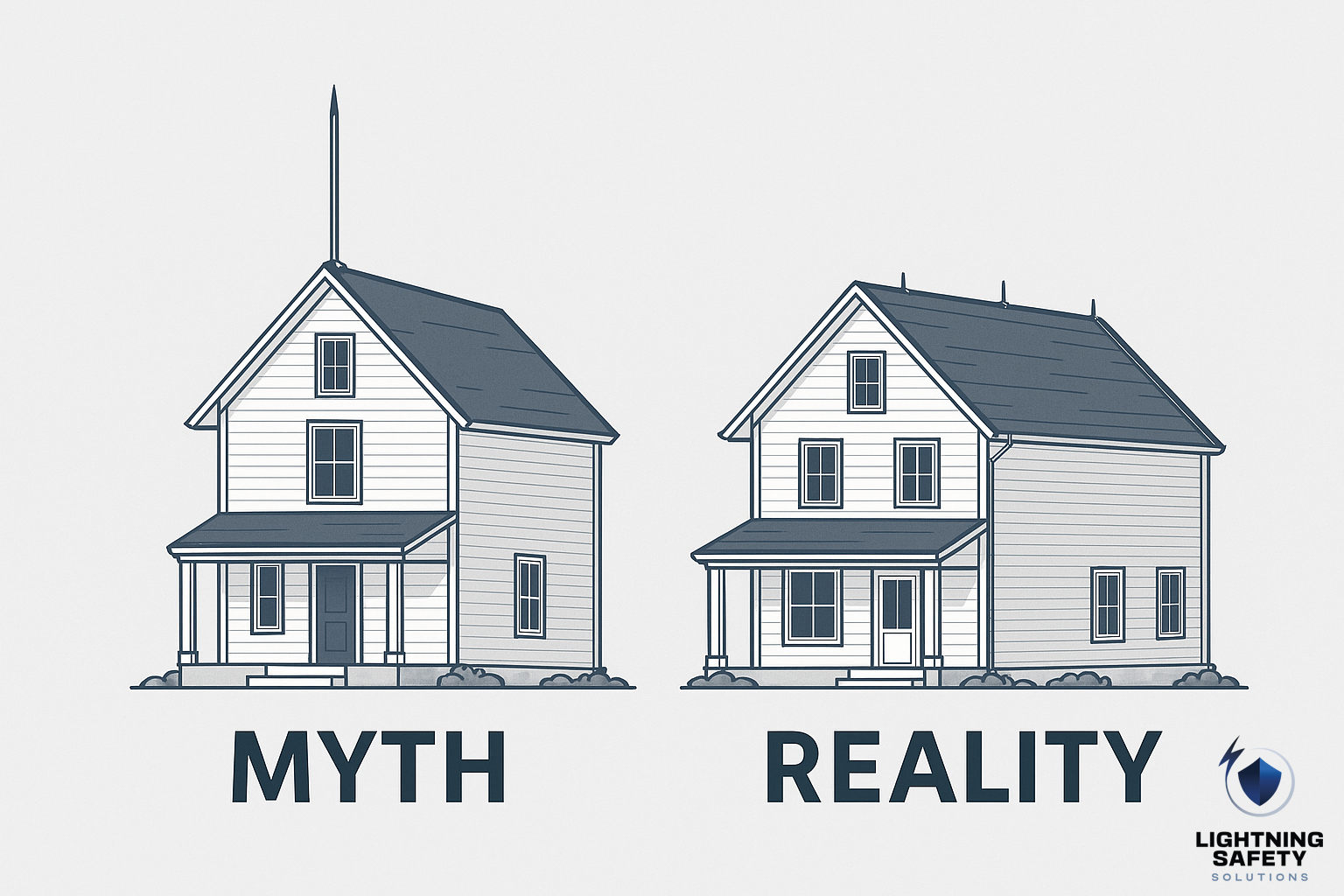The #1 Lightning Protection Myth — And Why It’s Putting Homes at Risk
If you've ever hesitated to install a lightning protection system because you thought it would "attract lightning" — you're not alone.
This is by far the most common misconception we hear from homeowners. And it’s one that’s putting thousands of homes at serious risk.
Let’s Set the Record Straight
Myth: Lightning protection systems attract lightning.
Truth: They don’t attract lightning. They safely intercept and redirect it when it’s already coming your way.
Lightning doesn’t choose where to strike based on what’s on your roof. It follows the path of least resistance to ground — and without a system in place, that path might be through your chimney, your gas line, or your attic.
What the System Actually Does
A modern lightning protection system includes:
-
Air terminals — low-profile rooftop interceptors
-
Conductor cables — safely route energy down the sides of the structure
-
Grounding rods — disperse energy harmlessly underground
These components do not increase your odds of getting hit by lightning. What they do is control the damage if and when you are hit.
And in North Texas?
That’s not an “if” — it’s a “when.”
Built to National Standards — Not Old Wives’ Tales
At Lightning Safety Solutions, we install systems built to meet:
-
UL 96A
-
NFPA 780
-
LPI 175
These are the national safety standards recognized by insurers, home builders, and fire departments across the country.
So, Where Did the Myth Come From?
It dates back over 100 years — to early lightning rods that were tall, obtrusive, and often poorly installed.
But today’s systems are:
-
Nearly invisible from the ground
-
Custom fit to your roofline and materials
-
Certified and safe by modern standards
Don’t Let a Myth Keep You Unprotected
The real risk isn’t installing a system.
The real risk is not having one when the next lightning strike hits your block.
📍Serving DFW & surrounding areas
💬 Schedule your free quote today — and protect your home the right way.



Share:
Is Surge Protection Enough? What Homeowners Get Wrong About Lightning Safety
Protect Your Roof, Protect Your Home: How Lightning Strikes Cause Structural Damage